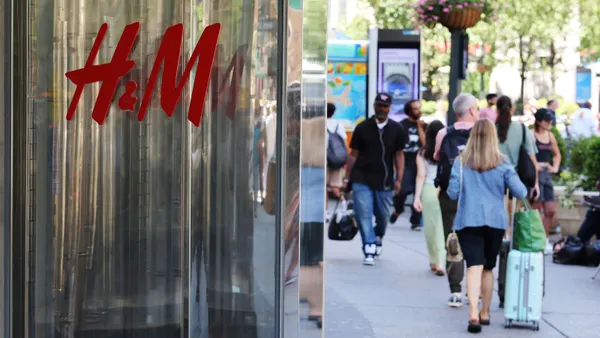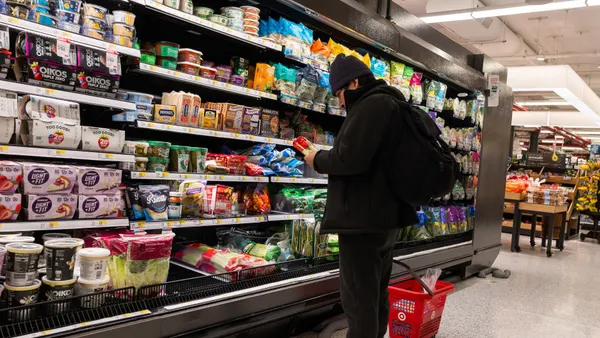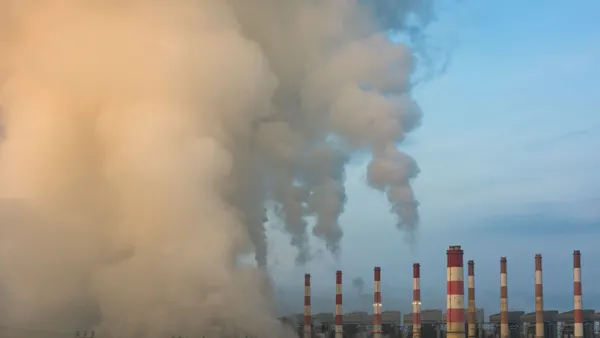Dive Brief:
- Circ, a textile recycling startup that’s attracted interest from big-name brands, raised $25 million in its latest funding round, money that will help the company fast-track plans to mass produce recycled fabric for the fashion and apparel industry.
- Backers of the Series B extension round include Zalando, a European e-commerce company; Youngone, an outdoor and athletic apparel manufacturer headquartered in South Korea; and Avery Dennison, a maker of tracking labels.
- Circ has previously raised money from Inditex, the parent company of Zara, and Tin Shed Ventures, the venture capital fund for Patagonia. To date, the startup has raised nearly $72 million, according to Crunchbase.
Dive Insight:
Though Circ isn’t the only startup attempting to mass produce recycled fabric, it’s one of the few that is trying to crack the code for recycling cotton-polyester blends at scale — a feat that has so far proved elusive.
It’s created a system that uses hot water, pressure and chemicals to quickly liquefy polyester into its basic components while keeping cotton solid. The company can then wash the solids and make them into fibers, as well reform the polyester from its liquefied building blocks.
The process salvages about 90% of both the cotton and polyester, according to Circ President Peter Majeranowski.
However, the company hasn’t come close to the scale needed to address the fashion industry’s problems. Its commercial pilot facilities can only process about 5 tons of textile waste each day — a fraction of the 11.3 million tons of textiles that end up in landfills each year in the U.S. alone.
The funding is helping accelerate plans for Circ to open its first large facility around the middle of this decade, though the timing depends on when the company selects a site. Majeranowski expects it will be able to process 200 tons of waste each day, which roughly equates to about 65,000 tons annually.
Majeranowski sees his company as one way to address the fashion industry’s climate impact. A 2020 report estimated that the fashion industry accounts for about 4% of global greenhouse gas emissions annually, a large share of which comes from extracting and processing raw materials like cotton and polyester.
Some brands have been incorporating more recycled fibers into their clothing in response. Yet recycled fibers made up only 8.9% of the global fiber market in 2021, according to Textile Exchange.
Recycled fabric made from existing textiles, including those from used apparel and items that were never sold, accounts for less than 1% of the global fiber market.
At the same time, demand for clothing is expected to keep increasing as the world’s population grows.
“In our view, circularity is inevitable because that’s the only way you’re going to be able to clothe these people and do it without further polluting the planet,” Majeranowski said. “Being able to do blends is what’s really unique about us.”
The company may also look to its new investors for help with finding textiles to recycle and selling its recycled products.
“We really saw value in having them as investors and really aligning partnerships — I’d say that was probably the biggest driver for us,” Majeranowski said.












